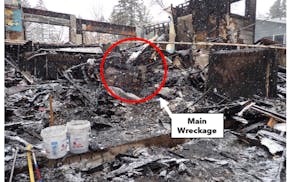Q: A key person I work with is retiring. He is someone who holds the team together and who we all look up to. We've done all the knowledge transfer we can, but when we get back in January he'll be gone. How do we adjust and move forward?
Erik, 43, product manager
A: Acknowledge the loss and embrace the possibilities that your colleague's departure opens.
As with any meaningful relationship, departures of important people at work can be wrenching. Give yourself space to experience sadness and appreciate all that he has contributed. Ideally you will have a group event where he is being celebrated and gets the send-off he deserves.
Also recognize any anxiety that his departure is triggering. It's natural to be worried about the practical gaps that you will encounter. Preparations that were done before he left will help but can go only so far.
Yet, don't overstate the risks. As a group, you will bring a great deal of knowledge and insight to any new issue that arises. You may not handle it in the same way he would have, but very few situations have just one right solution.
His departure also leaves a void in terms of group culture. Think about the ways in which he was influential. Maybe he tended to drive action. As a group, how will you avoid procrastination? Perhaps he was the idea person. In this case, how will you avoid intellectual stagnation?
This may be a very new way to think about your group dynamics. If so, it's easy to find articles online that will help you understand the roles people play on a team.
From there you can be intentional about the best ways to ensure that the key roles, formal and informal, are fulfilled.
Use this as an chance to consider your professional goals. Let's be real — even though there is loss, your colleague's retirement could provide a real opportunity for you to step up. These chances don't come along often.
Reflect on your career hopes. If you have been wishing for a broader role, don't be afraid to show your knowledge and skills. There will be a void, and if you are not obnoxious about it, your efforts to help smooth the path will be valued.
At the same time, support other colleagues' efforts to fill the gaps. You will each have ways to contribute, and this type of mutual support will help you avoid any reputation as a showboater.
Don't be afraid to reach out to your boss or others in relevant leadership roles. They are surely aware of the extent of the loss. Just keep in mind that the more you can bring ideas for solutions, the happier they'll be.
When all else fails, take a deep breath and move forward. The passage of time will help ease the challenges of this adjustment.
Special request for readers: I want to feature your blessings from 2019 and hopes for 2020 in an upcoming column. Please send me a sentence or two at liz@deliverchange.com and let me know if you want me to use your name.
What challenges do you face at work? Send your questions to Liz Reyer, leadership coach and president of Reyer Coaching & Consulting in Eagan. She can be reached at liz@deliverchange.com.

Ramstad: Readers see early signs of tariffs and miss printed stock tables
Trump tariffs created a volatile market, which comes with big opportunities

Trump tariffs whipped up a deluge of financial advice. Here's how to interpret it.

For some Minnesotans, air disasters trigger increased fear of flying and less travel

